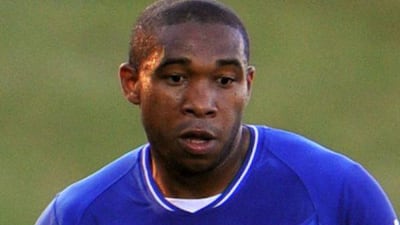Football has provided an escape from poverty for many players but for Honduran star Wilson Palacios it has come with a high price – the kidnap and murder of youngest brother Edwin.
The 29-year-old former Wigan and Tottenham midfielder now with Stoke will for the second successive World Cup finals bear the responsibility of trying to give the impoverished Central American country their first ever win in the competition.
Their hopes of achieving that look fair. Apart from France they have the Swiss, who they also had in the 2010 finals, and Ecuador, for whom Palacios’ close friend and former Wigan teammate Antonio Valencia plays.
In as much as Honduras can speak of sporting royalty Palacios is very much from a footballing one, his father Eulogio was a club player and then set up a football school, while the family made footballing history in the 2010 finals as Wilson was joined in the squad by his other brothers Jerry and Johnny.
However, it is Edwin who will forever remain in Wilson’s heart, after he was kidnapped in 2007. The family paid a reported $200,000 (Dh734,580) ransom demand – largely through Wilson – but he was found dead after two members of the 18th Street Gang confessed to the crime in 2009.
“My children went into football and that has brought problems for my family, but they only ever wanted fame, not money,” their mother said when she appealed vainly for him to be released.
“Wilson’s team gets the transfer money, he only gets his salary. I am obviously very happy for Wilson but my heart is with my poor little boy Edwin, my baby. I need the people who watch Wilson play football to know he’s carrying a big sadness with him.”
Wilson, for whom Spurs paid Wigan £12million (Dh74.4m) in January 2009 before selling him for half that to Stoke two years later, was so distraught that he thought of retiring from the sport.
“It was extremely tough for me and I did come close to retiring,” he told The Guardian in January 2010.
However, the player known as the ‘Magician’ – largely because of the goal he scored from halfway for his Honduran club Olimpia against Marathon to clinch his fifth and final league title with them in 2006 – was dissuaded from taking such a drastic move but he is keenly aware of the risks his family runs.
“It (kidnapping) is more prevalent if you are well known, especially a footballer,” he told The Guardian.
“I am aware that my family must take care with the way they go about their lives. It is something which is always on my mind.”
Palacios, who was initially given a trial by Arsene Wenger in 2007 and he recommended him to Steve Bruce at Birmingham who signed him when he became Wigan coach in 2008, believes his seven year stint in England has been good for his game and for the national side.
“As a player, you always learn from your peers,” he told Fifa.com in April.
“You must learn to succeed and I think I have learned a lot from very many good players.”
However, Palacios, who has over 90 caps for the national side since making his debut in 2003, will reserve his first thought when he runs onto the pitch for their opener against France on June 15 for Edwin.
“He is with God now but he is also with us, all the time and wherever we go.”
Follow us on Twitter @SprtNationalUAE

